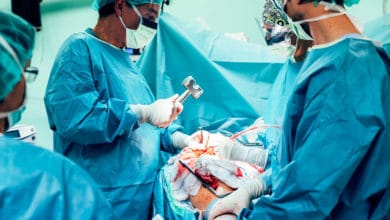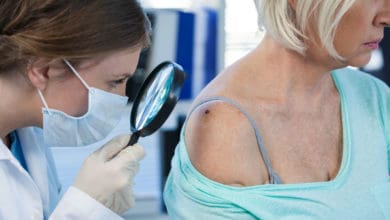If you want a career as a pathologist, here is how competitive the medical specialty is to match into a pathology residency. Pathology is the branch of medicine that involves the the study of the causes and effects of disease or injury. The word pathology also refers to the study of disease in general, incorporating a wide range of bioscience research fields and medical practices.
Statistics on the Pathology Match
As of the most recent NRMP data, pathology had a total of 827 applicants and 631 spots. This equates to 1.31 applicants per position. Of the 230 U.S. MD seniors who applied, 6 did not match.
| Total Positions | Total Number of Applicants | Number of Applicants per Position |
| 631 | 827 | 1.31 |
Osteopathic (DO) Students Matching into Pathology
The total number of DO Senior Applicants was 81. Of those, 75 matched, for a 92.59% match percentage. This makes pathology a Very Friendly field for osteopathic students.
| Total DO Applicants | Matched DO Applicants | DO Match Percentage | |
| 81 | 75 | 92.59% |
International Medical Graduates (IMGs) Matching into Pathology
Because there are only 0.36 U.S. MD applicants per 1 program spot, pathology is considered to be Very Friendly for IMGs students.
Honors, Research and Awards for Pathology Residency Candidates
The average matched U.S. applicant had 6.2 volunteer experiences and 3.4 work experiences. They had 3.4 research experiences and 8.5 abstracts, presentations and publications. That makes this specialty on where the number of publications needed is Medium.
| Research Experiences | Abstracts, Presentations and Publications | Work Experiences | Volunteer Experiences |
| 3.4 | 8.5 | 3.4 | 6.2 |
Average Step 2 Scores for Pathology
The mean USMLE Step 2 CK score was 245. The overall competitiveness level of pathology is Low for a U.S. senior.
How long is a residency in pathology? What is the lifestyle like for a pathology resident?
Compared to other residencies, pathology has a Short training length. As far as lifestyle, pathologists generally have a Low stress lifestyle. Of course, lifestyle is very subjective and if you love what you do, it does not matter! And if you hate what you do, it can still be rough no matter what. In medicine, you should find the specialty that makes you enjoy your everyday interactions with patients, staff and colleagues.
What is the average salary for a pathologist?
The average salary post-graduation from a pathology residency is $318,000, provided one does not go on to sub-specialty training which can change the salary substantially. Academic versus private practice as well as location also play a large role in physician compensation.
What are fellowships one can do from a pathology residency?
Following the successful completion of general pathology residency, some physicians may choose to continue their graduate medical education with subspecialty training. Board-certified subspecialists complete additional training and qualifying examinations beyond those required for board certification in pathology. Currently, the American Board of Pathology certifies the following fellowships:
What are the best pathology residencies in the country?
The best residency for pathology, or any specialty, is very driven by personal preference and situation. How close you are to family, loved ones, the type of training environment, the opportunities available are all things to take into consideration above and beyond name recognition of a program. However, there are some highly regarded names in the world of pathology including:
-
- Mt Sinai
- Columbia
- Johns Hopkins
- Cedar-Sinai
- Yale- New Haven Hospital
- NYU
Much of the data above is available from the AAMC Charting the Outcomes report.
FAQ: What Else Can I Learn About Pathology Residency?
Q: What makes pathology an appealing specialty?
A: Pathology is appealing because it serves as the cornerstone of medical diagnosis, bridging the gap between clinical care and laboratory science. Pathologists work behind the scenes to diagnose diseases, guide treatment decisions, and contribute to medical research. The specialty offers intellectual challenges, a variety of subspecialties, and a balanced lifestyle compared to many clinical fields.
Q: How many pathology residency positions are available each year?
A: Approximately 600-700 pathology residency positions are available annually in the United States. While pathology is less competitive than some other specialties, strong academic performance, research experience, and a demonstrated interest in laboratory medicine are valued by programs.
Q: Do I need research experience to match into pathology?
A: Research experience is not mandatory but is highly valued, especially for applicants interested in academic pathology or subspecialties like molecular pathology or hematopathology. Projects related to disease mechanisms, diagnostics, or lab-based studies can enhance your application.
Q: How important are away rotations for matching into pathology?
A: Away rotations are less critical for pathology compared to surgical specialties. However, they can be helpful if you are targeting specific programs or want to explore different practice settings. These rotations allow you to gain hands-on experience in a pathology lab and network with potential mentors.
Q: What should I include in my personal statement for pathology?
A: Your personal statement should highlight your interest in understanding disease processes, your analytical mindset, and your ability to work collaboratively in a team-based environment. Discuss experiences that sparked your passion for pathology, such as research, lab work, or clinical encounters, and outline your long-term goals in the field.
Q: What types of conditions do pathologists diagnose?
A: Pathologists diagnose a wide range of conditions, including cancers, infectious diseases, autoimmune disorders, hematologic diseases, and genetic disorders. Their expertise spans multiple organ systems, making them integral to patient care across all specialties.
Q: What procedures do pathologists typically perform?
A: Pathologists perform procedures such as gross examination of surgical specimens, microscopic analysis of tissues, fine needle aspiration biopsies, and autopsies. They also oversee laboratory tests, including molecular diagnostics, microbiology cultures, and hematology analyses.
Q: Are there opportunities for pathologists to focus on research?
A: Yes, pathology is a research-intensive field. Pathologists contribute to advancements in molecular diagnostics, cancer biomarkers, immunology, and precision medicine. Many participate in translational research, bridging basic science discoveries with clinical applications to improve patient care.
Q: What subspecialties are available within pathology?
A: Pathology offers numerous subspecialties, including:
– Anatomic Pathology: Focusing on tissue analysis and histopathology.
– Clinical Pathology: Managing laboratory testing and diagnostics.
– Hematopathology: Diagnosing blood and bone marrow disorders.
– Molecular Pathology: Using genetic and molecular techniques to diagnose diseases.
– Forensic Pathology: Conducting autopsies and investigating causes of death.
– Neuropathology: Specializing in diseases of the brain and nervous system.
– Pediatric Pathology: Diagnosing diseases in children.
– Dermatopathology: Focusing on skin diseases.
Q: What does the lifestyle of a pathologist typically look like?
A: Pathologists often enjoy a balanced lifestyle, with predictable work hours in lab-based settings. While some subspecialties, such as forensic pathology or transfusion medicine, may require on-call responsibilities, many pathologists find the work environment conducive to work-life balance.
Q: What innovations are shaping the future of pathology?
A: Innovations in pathology include advancements in digital pathology, artificial intelligence for image analysis, and molecular diagnostic techniques. These technologies are improving diagnostic accuracy, streamlining workflows, and expanding the role of pathologists in precision medicine.
Q: How does pathology intersect with other specialties?
A: Pathologists collaborate with nearly all specialties, including oncology, infectious diseases, hematology, and surgery. They provide critical diagnostic information that guides treatment decisions and help ensure the accuracy and quality of laboratory testing.
Q: Are there fellowship opportunities after completing a pathology residency?
A: Yes, fellowship opportunities include hematopathology, forensic pathology, molecular pathology, dermatopathology, neuropathology, and more. Fellowships provide advanced training and allow pathologists to specialize in areas of interest or pursue academic careers.
Q: What role do pathologists play in patient outcomes?
A: Pathologists play a critical role in patient outcomes by providing accurate diagnoses, guiding treatment decisions, and ensuring quality control in laboratory testing. Their work often serves as the foundation for clinical care and therapeutic strategies.
Q: What are the career opportunities for pathologists?
A: Pathologists can work in academic medical centers, community hospitals, private laboratories, or government agencies. Many also pursue careers in research, industry, or public health. The versatility of the specialty allows for diverse career paths.
Q: How do pathologists ensure accuracy in their work?
A: Pathologists ensure accuracy through meticulous attention to detail, the use of standardized protocols, and collaboration with other physicians and laboratory staff. They also participate in quality assurance programs to maintain high diagnostic standards.
Q: How do I find shadowing opportunities with a pathologist?
A: Contact pathology departments at academic medical centers, hospitals, or private labs. Networking through medical school advisors, mentors, or pathology interest groups can also help you connect with pathologists open to shadowing opportunities.
Q: What professional organizations can I join as a pathology student?
A: Students interested in pathology can join organizations such as the College of American Pathologists (CAP), American Society for Clinical Pathology (ASCP), and United States and Canadian Academy of Pathology (USCAP). These organizations provide mentorship, networking, and access to educational resources and conferences.
Q: How early should I start preparing for a career in pathology?
A: Begin early by excelling in coursework related to anatomy, microbiology, and histology. Join pathology interest groups, engage in research, and seek shadowing opportunities in pathology labs. Clinical rotations in pathology during medical school can also help solidify your interest and strengthen your residency application.
Did You Know?
- Pathology is the cornerstone of modern medicine:
The field of pathology dates back to the 19th century when Rudolf Virchow, often referred to as the “Father of Modern Pathology,” introduced the concept that diseases arise from changes in cells. His work laid the foundation for understanding disease at a cellular and molecular level.
- Pathologists analyze over 13 billion lab tests annually in the U.S.:
Pathologists play a critical role in diagnosing diseases by interpreting lab tests, biopsies, and blood analyses. Their expertise supports nearly every medical specialty, guiding treatment decisions and improving patient outcomes.
- Pathology is at the forefront of precision medicine:
Advances in molecular pathology have revolutionized cancer care by identifying genetic mutations and biomarkers. These discoveries enable targeted therapies, such as immunotherapy and personalized cancer treatments, offering more effective and tailored care for patients.
Explore Other Specialties:
| Specialty | Average Step 2 Score (Matched) |
|---|---|
| Anesthesiology | 246 |
| Child Neurology | 246 |
| Dermatology | 256 |
| Diagnostic Radiology | 249 |
| Emergency Medicine | 247 |
| Family Medicine | 238 |
| General Surgery | 249 |
| Internal Medicine | 248 |
| Internal Medicine/Pediatrics | 250 |
| Interventional Radiology | 255 |
| Neurological Surgery | 252 |
| Neurology | 245 |
| Obstetrics and Gynecology | 248 |
| Orthopaedic Surgery | 255 |
| Otolaryngology | 256 |
| Pathology | 242 |
| Pediatrics | 245 |
| Physical Medicine and Rehabilitation | 241 |
| Plastic Surgery | 256 |
| Psychiatry | 241 |
| Radiation Oncology | 250 |
| Vascular Surgery | 247 |



